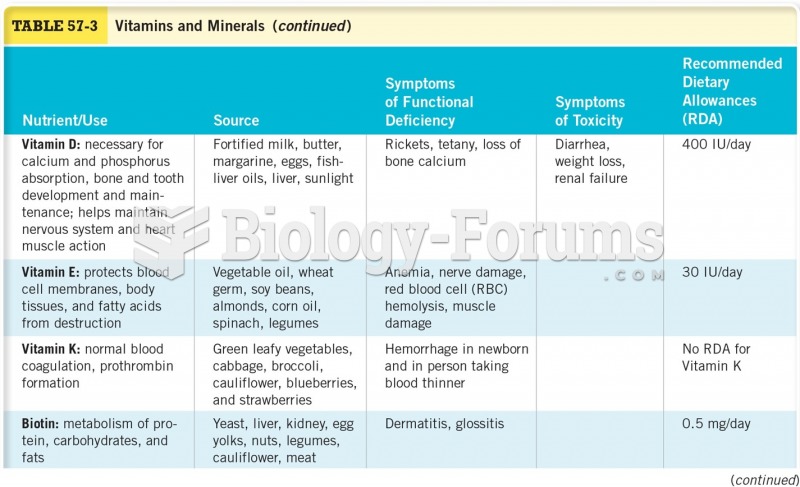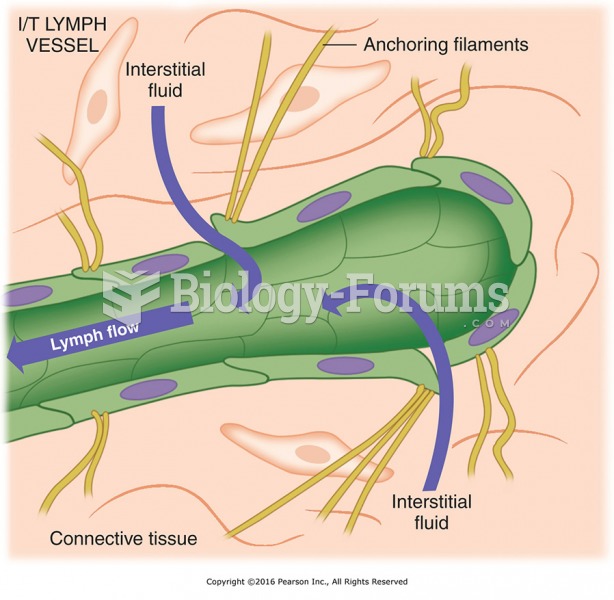Answer to Question 1
1,5
Rationale 1: Research has shown such a strong correlation between decreased folic acid/folate intake and the risk of neural tube defects that all women who are considering becoming pregnant are encouraged to begin taking a 400 mcg supplement beginning 2 months before attempting conception and to continue through the first trimester.
Rationale 2: One role of the nurse is educator, and this patient needs additional information on why she needs the supplements.
Rationale 3: One role of the nurse is educator, and this patient needs additional information on why she needs the supplements.
Rationale 4: Therapeutic communication requires addressing the patient's concern, and not giving a cliche for an answer. One role of the nurse is educator, and this patient needs additional information on why she needs the supplements.
Rationale 5: One role of the nurse is educator, and this patient needs additional information on why she needs the supplements.
Answer to Question 2
1
Rationale 1: A postsurgical patient is at risk for internal bleeding at the site of the surgery. Monitoring blood pressure and pulse is necessary to verify that the patient is hemodynamically stable.
Rationale 2: Although this patient will not be able to become pregnant, because of the surgery, acceptance is a psychosocial issue and a lower priority.
Rationale 3: Splinting while deep-breathing is a comfort measure to facilitate oxygenation and prevent atelectasis, but this is not the highest priority.
Rationale 4: The patient needs IV fluids to replace blood loss during surgery and until oral intake is adequate, but this is not the highest priority.







